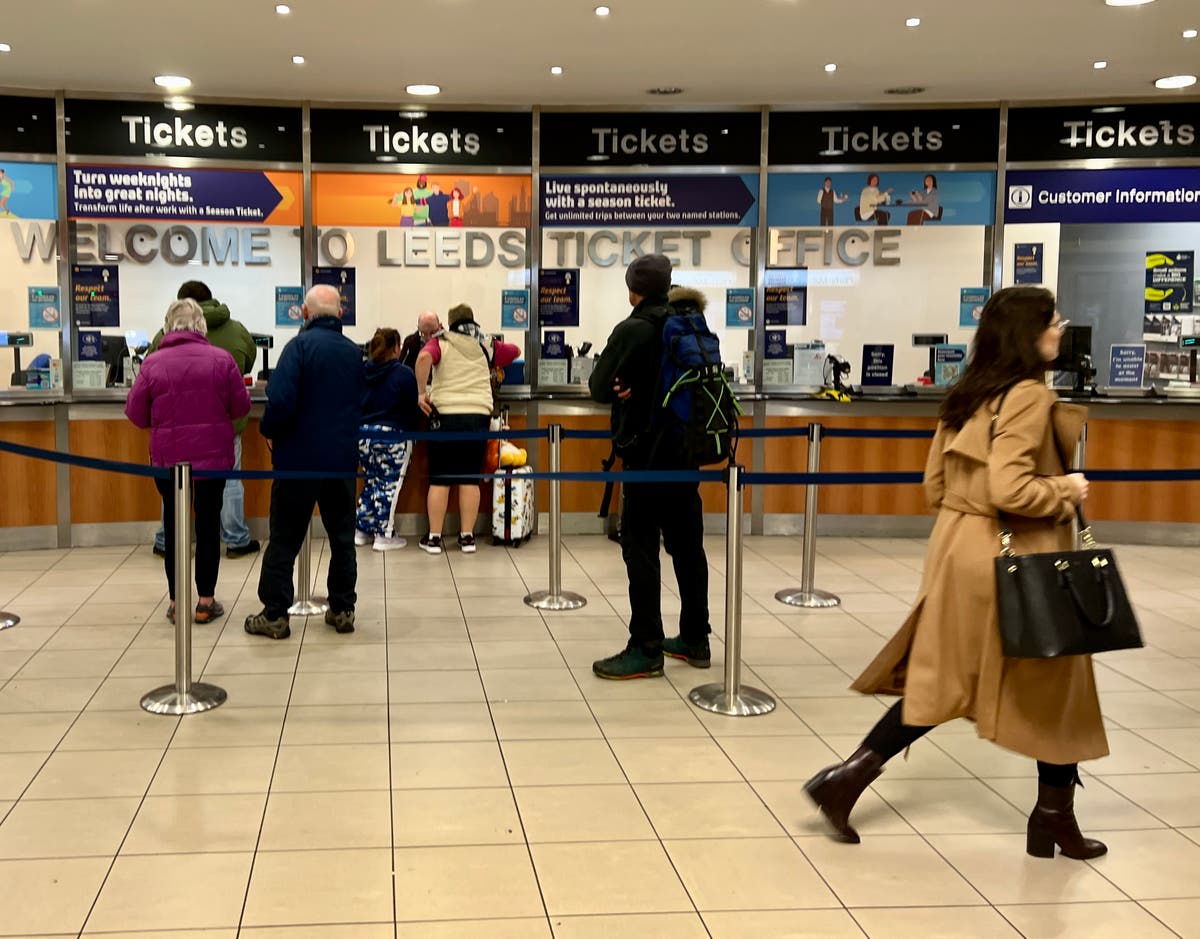Rail ticket office closures loom as ministers and train firms sideline union
Exclusive: ‘The removal of ticket offices would create the conditions for a muggers’ paradise on the railways’ says RMT general secretary Mick Lynch

Sign up to Simon Calder’s free travel email for expert advice and money-saving discounts
Get Simon Calder’s Travel email
Railway ticket offices across England could start closing by Christmas, according to plans about to be rolled out by train operators with the blessing of ministers.
More than 1,000 station booking offices are set to be closed as the government seeks savings in the cost of running the railway. Officials insist passengers will also benefit by ticket office staff moving onto the concourse and platforms, where they can assist travellers.
They point out that 43 per cent of British railway stations are currently unstaffed or have no ticket office, and 40 per cent of ticket offices are only part time.
But Mick Lynch, general secretary of the RMT union, said: “The removal of ticket offices would create the conditions for a muggers’ paradise on the railways.” And disability rights activists have demanded “urgent action” from the Office of Rail and Road and the Equality and Human Rights Commission.
The Independent understands that train operators will orchestrate the announcement of plans to close all but a handful of booking offices in England. Some busier English stations may retain ticket offices.
ScotRail and Transport for Wales are unaffected, and Merseyrail is not involved. Transport for Wales manages five stations in England – Chester, Hereford, Leominster, Runcorn East and Shrewsbury – and has no plans for wholesale changes at these or other stations it manages.
Rail industry insiders insist that the legally required notices under Schedule 17 of the Ticketing & Settlement Agreement mark the start of a consultation designed to improve passenger service rather than a pre-determined plan to cut costs.
One executive at a leading train operator said: “This isn’t about pulling the shutters down with nothing to replace it. We are trying to move our staff to where they are most needed, on concourses and platforms.
“We want to give them permission to come out of the ticket office – and the natural consequence of that is to close the ticket office.”
The biggest upheaval in the railway industry for a generation is to be imposed without the involvement of the RMT. Members working in ticket offices will be retrained for wider roles – unless they choose to leave the industry.
The proposed mass closure is being pushed through during an impasse in negotiations in the long and bitter rail dispute. National strikes by members of the RMT union began in June 2021, and employees at more than a dozen train operators will walk out again for three days later this month.
The stalemate is largely over reforms to working practices. The unions are demanding no-strings pay rises, while ministers – who will sign off the final settlement – say efficiencies are required to fund wage increases.
Train firms are legally obliged to give a 21-day notice of intention to close a ticket office and invite responses from the public. If objections are raised by the passenger watchdog Transport Focus (or, in the capital, London Travelwatch), then a two-week consultation takes place, while the transport secretary, Mark Harper, has the final say. In theory the first closures could begin by mid-August, though consultation with existing staff and possible retraining means the target is for closures to begin by Christmas.
Rail industry sources say the consultation will be serious. Challenges are expected from passenger groups such as the Association of British Commuters, and those representing travellers with reduced mobility and needing additional support.
Disability rights activists have written to the chief executive of the Office of Rail and Road as well as the chair of the Equality and Human Rights Commission.
In an open letter, signed by a dozen leading figures, they say: “Both regulators must now take urgent action, including a public position on whether accessibility and retail mitigations are ready to go forward. If they do not believe this to be the case, they should call for an immediate pause to proceedings and prepare to make use of their full regulatory powers to intervene.
“This is the only way to ensure that rail modernisation plans are properly regulated and consistent with the public sector equality duty of to ‘eliminate discrimination’ and ‘advance equality of opportunity’.”
Opponents also say the anticipated proposals will harm passengers – who, they say, should be able to continue to seek the best-value ticket with the help of an expert.
But train operators say passenger booking habits have changed dramatically since the Covid pandemic, stating:
“Effectively, ticket office staff are doing half the amount of work than they were in 2019, and this is designed to rectify that,” a source said.
But the RMT maintains that booking offices are essential. Mr Lynch said: “Ticket offices serve multiple purposes on stations, including a place where elderly people and the vulnerable can seek assistance. Ticket offices are also secure locations that provide a place of safety and security for staff and passengers, including during emergencies or disruption.
“We are totally opposed to ticket office closures and a railway that is run on the cheap for the maximum profit of private companies.
“And our strike action on 20, 22 and 29 July on the 14 train operating companies, is part of our resistance to ticket office closures.”
Sweden has recently removed all station staff in a bid to control costs. Passengers needing assistance are told to call a helpline.

 Troov
Troov 
































